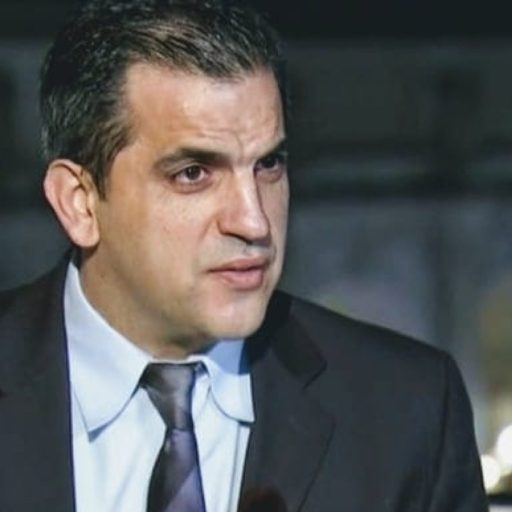Trump’s policies also complicate Pompeo’s mission by making it difficult for potential allies in the region reluctant to openly support U.S. plans, said Joe Macaron, a resident fellow at the Arab Center in Washington, in a phone interview on Friday. Click here to read the full quote.
“
“Washington should be careful not to push Lebanon to the brink, as Hezbollah would retaliate if its survival is at stake,” said Joe Macaron, a resident fellow at the Arab Center in Washington. “In the current status quo, the most effective way to restrain Hezbollah remains within the intricate parameters of the Lebanese political system,” he said. You can read the full article here.
Joe Macaron, a fellow at the Arab Center Washington DC, said announcing a resignation on Instagram is “unconventional and unprecedented” for an Iranian official. “It seems… Zarif submitted his resignation letter and went on social media before either Rouhani and Khamenei [can] react to this resignation, which might mean that Zarif is locked in a fight with hardliners on what directions should the Iranian foreign policy take amidst growing US pressure on its economy,” Macaron told MEE via email. “We are yet to know the full story behind this resignation, but it seems to reflect heated debates in Tehran around the foreign policy challenges facing the Iranian regime.” Click here to read the full article.
“What we are currently seeing is the most serious attempt by hawkish and conservative advisers to get the US directly involved in the Syrian war, an attempt that echoes Israeli concerns about US withdrawal plans from Syria,” said Joe Macaron of the Arab Center Washington, DC, further explaining that the aggressive position is not universally accepted.”Trump himself and the Pentagon are resisting this temptation, Israel will most probably continue in the foreseeable future to fight its own battles against Iran.” Click here to read the full article.
“There is an obvious systemic shift in the US national security apparatus that will alter the dynamics of the Trump administration’s decision-making process on the Middle East,” said Joe Macaron, a fellow at the Arab Centre in Washington.
Macaron said he expected Defence Secretary James Mattis and Chief of Staff John Kelly, two former generals seen as supporters of a moderate approach, “to be balanced by the hawkish civilians” Pompeo and Bolton. “However, the verdict is out on how these bureaucratic changes will translate into policy making,” Macaron added via e-mail. “The Pentagon seems to have the upper hand for the foreseeable future.”
Macaron noted that Trump’s hard-line position on Iran was “in rhetoric only.” The administration’s main goal was to distance itself from the JCPOA without hurting US interests in the Middle East but it did not know how to go about that, he said.
“The United States has no strategy in the Middle East. There is neither appetite nor willingness to embark on new military adventures in the Middle East,” Macaron said.
Click here to read the full article.
Joe Macaron, a fellow at the Arab Centre in Washington, said the US strategy assumed that the war in Syria was almost over but “recent events proved otherwise.” There were “new doubts now about [US] commitment to Kurdish forces and a potential confrontation with Turkey in Syria,” Macaron wrote via e-mail. “At any rate, this US strategy lacked specifics and did not convey a clear game plan in Syria.”
